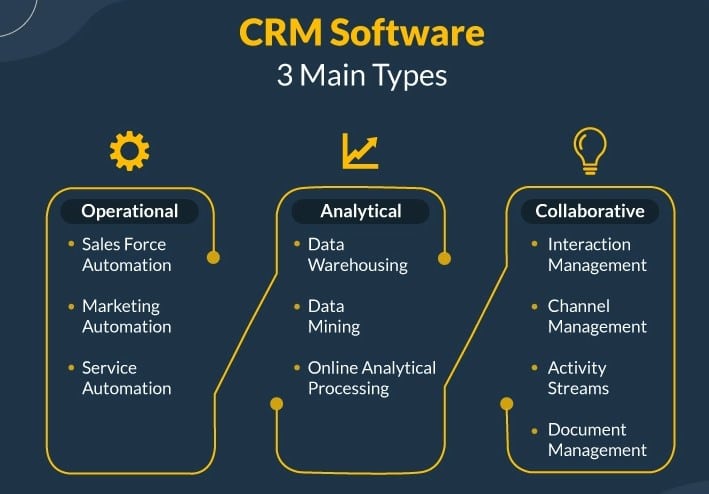As businesses continue to grow, it becomes increasingly difficult to manage customer relationships manually. A Customer Relationship Management (CRM) system can make things easier by automating the process of collecting, storing, and analyzing customer data. However, with so many CRM software options available on the market, it can be challenging to know which one to choose. In this article, we will provide you with the necessary steps to help you select the right CRM software for your sales strategy.
Understanding Your Business Needs
The first step in selecting the right CRM software is to understand your business needs. What are the specific goals of your sales strategy, and how can CRM software help achieve them? Are you looking to manage leads, automate sales tasks, or track customer interactions? Identifying your business needs and goals will help you narrow down the search for the right CRM software.
Consider the Features
Once you have identified your business needs, the next step is to consider the features offered by different CRM software options. Some basic features of CRM software include contact management, lead management, and sales forecasting. However, other features such as marketing automation, social media integration, and mobile accessibility can vary between different CRM software options. Consider which features are essential for your business and prioritize them accordingly.
Ease of Use
A CRM software system must be user-friendly, with an intuitive interface that is easy to navigate. If a CRM software system is too complicated, your sales team will not use it effectively. Look for a system that is easy to set up and offers excellent training and support resources.
Integration with Other Systems
Before choosing a CRM software system, consider how it integrates with other systems that you are currently using. Does it integrate with your email provider, marketing automation software, or social media platforms? Integration with other systems will help streamline your sales process and improve productivity.
Mobile Accessibility
The ability to access CRM software on mobile devices is becoming increasingly important for sales teams. Look for a CRM software system that offers mobile accessibility, allowing your team to access important data while on the go.
Scalability
As your business grows, your CRM software needs will evolve. Look for a CRM software system that can scale with your business, offering more advanced features as your business expands.
Security
Security is an essential consideration when choosing a CRM software system. Ensure that the system you choose offers encryption of sensitive data, such as customer information, and regular backups to prevent data loss.
User Reviews and Ratings
One of the best ways to gauge the effectiveness of a CRM software system is by reading user reviews and ratings. Look for reviews from businesses in a similar industry as yours to gain insight into how the software performs in real-world situations.
Cost
Finally, consider the cost of different CRM software options. Some software options may require a one-time fee, while others may charge a monthly subscription fee. Consider your budget and choose a CRM software system that offers the features you need at a reasonable price.
Conclusion
Choosing the right CRM software is essential for any business looking to improve its sales strategy. By understanding your business needs, considering the features, ease of use, integration with other systems, mobile accessibility, scalability, security, user reviews and ratings, and cost, you can select the best CRM software system for your business.
FAQs
- What is a CRM software system? A CRM software system is a technology tool that helps businesses automate the process of collecting, storing, and analyzing customer data.
- What are the essential features of a CRM software system? Some essential features of a CRM software system include contact management, lead management, and sales forecasting.
- How do I know which CRM software system is right for my business? To choose the right CRM software system for your business, you must first identify your business needs and goals, consider the features offered by different CRM software options, and prioritize the essential features. You should also consider ease of use, integration with other systems, mobile accessibility, scalability, security, user reviews and ratings, and cost.
- Can CRM software be used for more than just sales? Yes, CRM software can be used for more than just sales. It can also be used for marketing, customer service, and other business operations that involve managing customer interactions.
- Is it necessary to invest in expensive CRM software? No, it is not necessary to invest in expensive CRM software. There are many affordable CRM software options available on the market that offer essential features and functionality for small and medium-sized businesses.
Tips for Implementing a CRM Software System
Once you have selected the right CRM software system for your business, it’s time to implement it effectively. Here are some tips to help you get started:
- Set clear goals and objectives for implementing the CRM software system.
- Provide sufficient training and support to your sales team to ensure they can use the system effectively.
- Ensure that the system is integrated with your other business systems to streamline your sales process.
- Regularly monitor and analyze the data collected by the system to make informed business decisions.
- Continuously evaluate the effectiveness of the system and make necessary adjustments to ensure it meets your business needs.
By following these tips, you can successfully implement a CRM software system that improves your sales strategy and helps you achieve your business goals.
Final Thoughts
Choosing the right CRM software system for your business is crucial for improving your customer relationship management and sales strategy. By considering the features, ease of use, integration with other systems, mobile accessibility, scalability, security, user reviews and ratings, and cost, you can select a system that meets your specific business needs. Once you have selected the right CRM software system, ensure that you implement it effectively and continuously evaluate its effectiveness to ensure it meets your business goals.
Read More :
